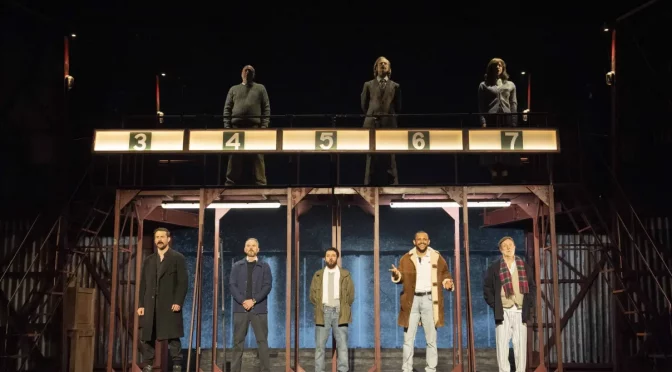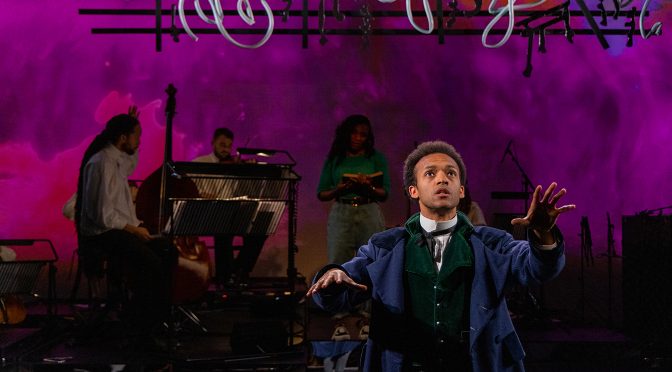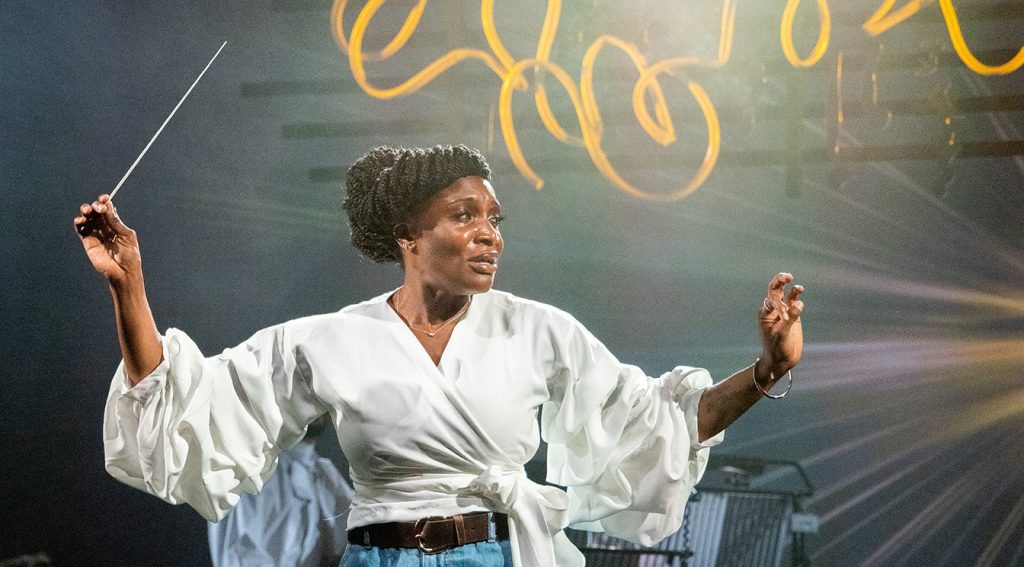Since the word seminal is nearly always attached to Alan Bleasdale’s 1982 television drama, it is easy to declare its cultural significance. But given that theatre lacks working-class stories – and current concerns around inequality and austerity – the show still feels urgent. The effects of Liverpool’s “managed decline” by Margaret Thatcher’s government are shown through powerful stories of family and friendship that make for great drama.
It’s all meat and drink to its adaptor, playwright James Graham, who is an expert at bringing politics to the stage while focusing on personalities (think This House, Labour of Love or Monster Raving Loony). Graham turns out ideas and emotions in equal measure. Meanwhile, director Kate Wasserberg does an excellent job of making it all theatrical, with song and sound (credit to Dyfan Jones) as well video work (James Jenkin) used throughout. There’s strong input from movement director Rachael Nanyonjo, especially during a fight scene. And a brilliant twist when it comes to one character’s children (that I won’t spoil).
The politics can’t help but be heavy handed – they reflect desperation. But the history is dealt with more lightly (although Amy Jane Cook’s costumes are spot on). Above all, it is the characters brought to the stage so vividly, still well-loved long after they have left our TV screens, that prove the biggest success.
Lined up at the dole office as if they were criminals, we see this “famous five” as a close-knit group of mates and are instantly on their side. Their history and trials are held together by Philip Whitchurch’s powerful portrayal of the slightly older George, a good man who acts as a confidante to all and whose death brings a tear to the eye.
Another focus is the well-meaning Chrissie, too nice for his own good, who faces a moral dilemma that Nathan McMullen makes epic. Mark Womack’s performance as Dixie, forced to compromise in order to make ends meet, is a neat contrast that’s quieter, maybe, but no less moving. The fate of Loggo, played by Aron Julius, who moves away to look for work, provides further food for thought. And by no means least, Barry Sloane’s troubled Yosser is a forceful presence with his famous “gizza job” refrain summing up so many of the show’s concerns.
The humour is distinctive, and interesting. There are jokes in Boys from the Blackstuff – good ones. But care is taken by Bleasdale not to laugh at, let alone patronise, his creations and Graham respects this. While there are big emotions on display, performers never overplay their gags. We are even told to stop laughing in a powerful scene for Lauren O’Neil, who plays Chrissie’s wife Angie. She is sick of putting on a brave face as she goes hungry. Of the show’s many admirable qualities, the justifiable anger that burns away makes sure this is a work that stands proud. A good job all around.
Until 3 August 2024
Photo by Alastair Muir



